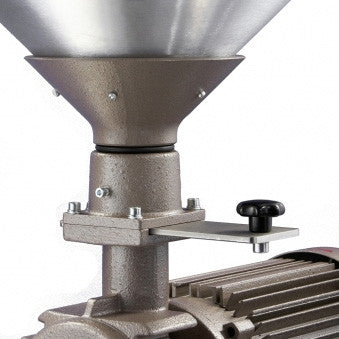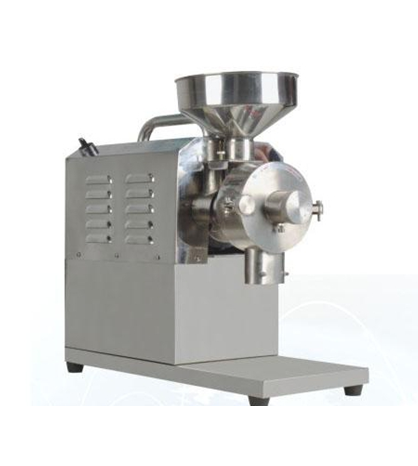Industrial Coffee Grinder for Mass Brewing: What You Need to Know
Industrial Coffee Grinder for Mass Brewing: What You Need to Know
Blog Article
Industrial Coffee Grinder Overview: Increase Efficiency and Quality
In the competitive landscape of coffee production, choosing the right commercial coffee grinder plays a crucial duty in boosting both efficiency and item top quality. Understanding the subtleties of numerous mill kinds and essential functions-- such as personalized grind settings and robust construction-- can considerably affect the final flavor account of the coffee. The optimization of the grinding procedure, paired with thorough upkeep, is important for maintaining performance over time. As we explore these important aspects, it ends up being noticeable that the implications prolong beyond plain tools option, impacting total company success in ways that necessitate closer examination.
Comprehending Grinder Kinds
When picking an industrial coffee grinder, recognizing the different kinds available is crucial for maximizing both flavor extraction and operational performance. Both primary types of mills are blade mills and burr grinders. Blade grinders utilize sharp blades that chop coffee beans into irregular sizes, causing unequal removal and potentially undesirable tastes. While blade grinders are typically much more suitable and budget-friendly for small-scale procedures, they are typically not advised for industrial usage.

Ultimately, selecting the appropriate sort of grinder is essential to keeping high quality and performance in coffee manufacturing, making it essential for businesses to purchase top quality burr grinders for optimal results.
Trick Functions to Take Into Consideration
Selecting an industrial coffee mill requires cautious consideration of several essential features that can significantly affect both efficiency and the total coffee experience. Among the key elements to assess is the grinding system. Burr mills are typically favored over blade mills, as they provide a consistent work size, which is important for optimum extraction and flavor.
Another vital feature is the grinder's capability. A versatile grinder with multiple setups enables you to customize the grind dimension to different brewing techniques, improving the coffee's flavor profile.
Examine the grinder's sound degree, especially in a busy café or production atmosphere, where excessive noise can be turbulent. Investing in a grinder that balances these attributes can considerably improve both operational performance and the top quality of the coffee offered.
Optimizing Grinding Refine
To attain the finest outcomes in coffee prep work, enhancing the grinding procedure is necessary. The work dimension significantly affects extraction, flavor, and overall high quality of the brewed coffee.


In addition, monitoring the grinding rate can optimize the process. Slower grinding frequently produces less warmth, protecting fragile tastes and aromas. On the other hand, much faster grinding may generate excessive heat, negatively affecting the coffee's quality.
Maintenance and Treatment Tips
Proper upkeep and treatment of commercial coffee mills are crucial for making sure optimum performance and long life. Routine cleansing is the structure of maintenance; residue accumulation can influence taste and grinding effectiveness. It is advisable to clean the grinder after each use, cleaning down the outside and getting rid of any kind of coffee premises from the burrs.
In addition, inspect the grinding burrs for damage. Boring burrs can jeopardize grind consistency, so they must be replaced as essential. Industrial Coffee Grinder. Regularly calibrating the mill is additionally important, as this keeps the desired work dimension for numerous brewing methods
Lubrication of moving click here to read parts ought to be performed according to the producer's specifications, as this decreases rubbing and extends the life of the tools. It is necessary to make use of food-grade lubricating substances to make sure safety and security and conformity with health and wellness policies.
Last but not least, maintain the mill in a dry and secure setting to stop rust and rust. By adhering to these upkeep and treatment pointers, operators can enhance the effectiveness of their industrial coffee grinders while making certain top quality outcome and prolonged operational life.
Return on Investment Analysis
Assessing the return on investment (ROI) for industrial coffee grinders is vital for companies seeking to optimize their coffee production capacities. official website A thorough ROI analysis assists establish the financial feasibility of spending in high-quality mills, enabling organizations to evaluate the first expenses against prospective gains.
To perform a comprehensive ROI evaluation, companies should take into consideration numerous essential aspects. First, examine the acquisition cost of the mill, including setup and any necessary alterations to existing framework. Next, compute operational prices, consisting of power consumption, upkeep costs, and labor performance enhancements. High-performance grinders frequently cause decreased grinding time and boosted throughput, which can significantly boost performance.
In addition, consider the influence on product top quality. Industrial Coffee Grinder. Superior mills generate an even more regular work dimension, which can enhance flavor accounts and client contentment, eventually driving sales. By enhancing the quality of the end product, organizations can warrant greater pricing, leading to increased profits
Verdict
In summary, a commercial coffee grinder plays a critical role in improving both efficiency and product quality within coffee manufacturing. Eventually, the calculated financial investment in a trusted mill contributes significantly to boosted revenue and competitiveness in the coffee market.
In the competitive landscape of coffee manufacturing, selecting the appropriate industrial coffee mill plays a crucial function in improving both performance and item quality. The 2 primary kinds of mills are blade grinders and burr mills. Within the burr grinder group, there are level burr grinders and conical burr grinders, each with its advantages. Burr mills are normally favored over blade grinders, as they supply a regular grind dimension, which is essential for optimum extraction and flavor.
In recap, a commercial coffee mill plays a critical role in improving both efficiency and item high quality within coffee production.
Report this page